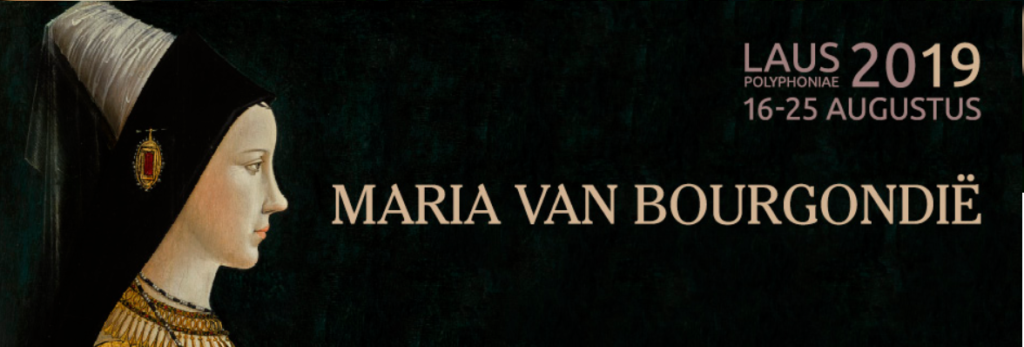Burgundian polyphony and mesmerizing masses
An exciting world first will take place next Thursday at Antwerp’s Laus polyphoniae Festival: a new programme of music by Gilles Joye (1424-25—1483), a composer whose contemporaries considered him to be one of the greatest composers of his age, but who today is little known. A handful of polyphonic songs in the burgundian style have come down to us, alongside two mesmerizing masses based on John Bedyngham’s famous song O rosa bella.
Since his music has become (undeservedly) obscure in our day, scarcely any recordings of Joye’s work have been made. This concert is a step towards remedying that, because it is a chance for me and my group, ClubMediéval, to explore and play with Joye’s fine pieces so that we can really begin to inhabit them ourselves, and to glimpse the character of the man who composed them. We’re planning to record a musical portrait of Joye to complement the portrait that the great Hans Memling painted of him during his lifetime.
And what a lifetime it was. Thanks to the research of Hendrik Callewier of Leuven University, we know that Joye’s lifestyle was quite far from the priestly and pious image that he projects in the portrait he commissioned from Memling to hang in the the sacristy of Bruges’ ancient Sint-Donaas Cathedral.
For a start, we know he never paid Memling for his work. That seems a fitting action for a man who seems to have been something of a mafioso, enjoying the vibrant nightlife of Burgundian Bruges, which was a major world city in the mid-Fifteenth century. We know that he lived openly with his mistress Rosabella, for which he was (understandably) chastised by his employer the church.
But as well as being renowned as a scoundrel, he was well known as a singer for the chapel of the itinerant Burgundian court, and as composer. Aside from his sacred music, we get the sense of Joye as a lover of worldly pleasures from the texts he either wrote or chose to set to music, which are often witty, plainly obscene or blasphemous. All the more daring for an ordained priest!
Biographical details about his and his colleagues have influenced the orchestration of our concert, for example we know that two blind castilian fiddle players were amongst the musicians Joye played with, whence our choice of two interweaving fiddle parts in Mercy, mon deuil and Non pas que je veuille penser.
If you can be in Antwerp on Thursday 22 August, don’t miss the chance to hear this wonderful programme, and prepare to be dazzled by Joye’s powerful music. To stay up to date with our plans to make a disc with Joye’s never-recorded work, sign up for my newsletter below by entering your email address in the subscribe field.

Contact
+32 475 52 49 27
thomasbaete@hotmail.com
MANAGEMENT & BOOKINGS
Stijn Jacobs
+32 479 44 67 46
stijnjacobs@bookman.be
Subscribe
Sign up for concert news
Selected track
Amalia Vermandere
